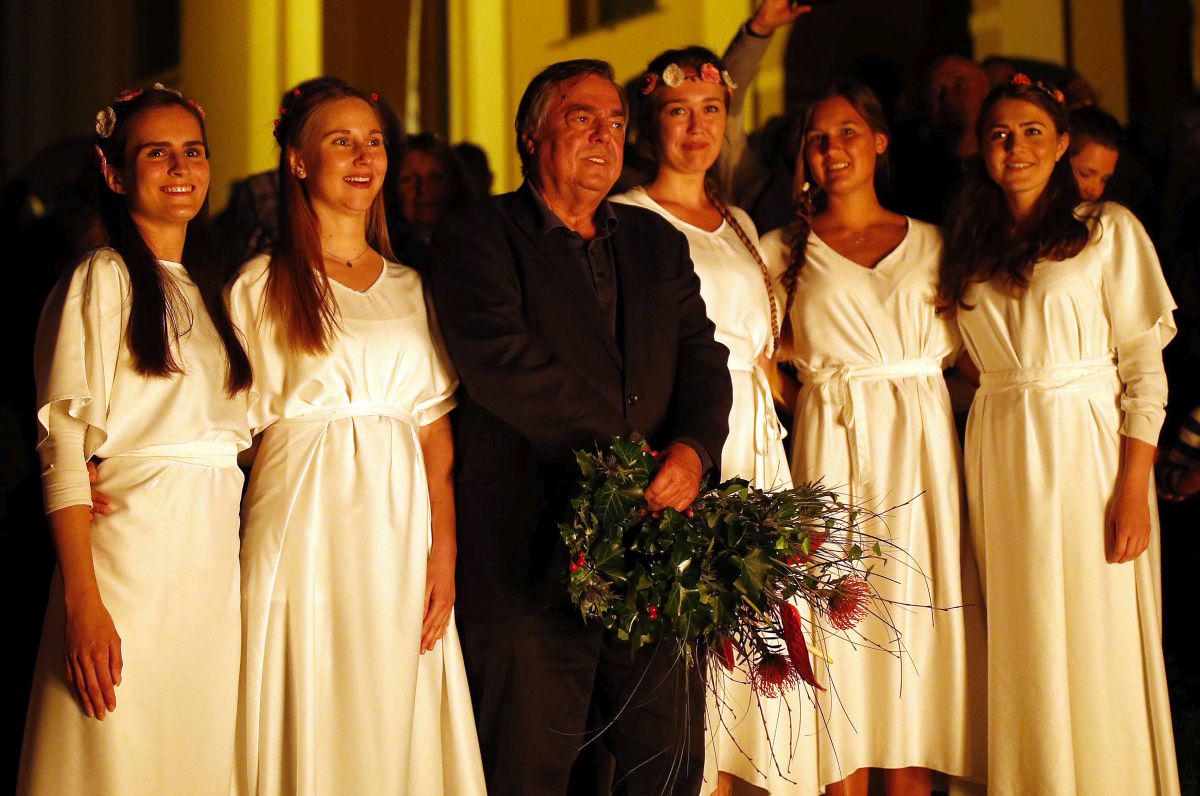Drago Jančar has been awarded the Kresnik Prize, presented by the Publishing House Delo for the best Slovene novel of the previous year, for his eleventh novel In Ljubezen tudi (And Love Also).
The laureate said upon receiving the prize that this novel, which braids the stories of people marked and broken by WWII, was simply waiting to be written. Jančar, who arrived at the Rožnik awards ceremony at the last moment, said that the novel deals at the same time with a key period in Slovene history and with his own personal experiences. "But every process of writing a novel is a difficult adventure, a tunnel, into which one descends and then needs to swim out of it into the light."
This time the shortlisted novels for the prize were In ljubezen tudi (And Love Also) by Drago Jančar, Sveti boj (Holy Fight) by Vlado Žabot (both published by Beletrina), Vse moje Amerike (All My Americas) by Štefan Kardoš, Gramoz (Gravel) by Florjan Lipuš and Starec in jaz (The Old Man
and Me) by Sarival Sosič (published by Litera).
Jančar, the triple laureate
Jančar won the prize for the first time in 1999 with his novel Zvenenje v glavi (Ringing in the Head); in 2001 he received the Kresnik for Katarina, pav in jezuit (Katarina, the Peacock and the Jesuit), and in 2011 for To noč sem jo videl (I Saw Her That Night). Two of his novels have been among five shortlisted novels: Posmehljivo poželenje (Mocking Desire) in 1994 and Drevo brez imena (The Tree with No Name) in 2009. In 2007, his novel Graditelj (The Builder) was one of ten shortlisted novels. This year’s winning novel braids the stories of three protagonists, marked and broken by WWII.
Mitja Čander, director of the Beletrina Publishing House and editor of the Beletrina literary collection, said that Jančar's novel is of special importance to him, "because in it, Jančar writes about the wartime destiny of my Maribor and my Štajersko region". According to Čander, this destiny was different in many aspects from the Slovene tragedy of that time. Here, the conflict between the German and Slavic world was even more intense, and human passions left their mark on generations right through to today – in both a positive and negative way. Čander stressed: "Jančar is of course not a historian. At the centre of his interest are people with their restlessness, hopes and fears. The writer is obsessed by everything that is boiling within us during the roaring of the war, everything that time will wash away. Including love."
Lighting a bonfire in the company of fireflies
Last year's winner was Goran Vojnović for his novel Figa (The Fig), while the previous year the Prize went to Miha Mazzini for his novel Otroštvo (Childhood).
Oglas


































































